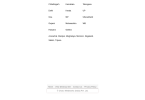Did Your Broker Scam You? | Fill out the form below or connect with us via live chat for a free consultation with CNC Intelligence experts. Let us help you trace and recover your lost funds..
Afghanistan is a country located in the heart of Asia, bordered by Pakistan to the east and south, Iran to the west, Turkmenistan, Uzbekistan, and Tajikistan to the north, and China to the far northeast. With a population of over 38 million people, Afghanistan is one of the most populous countries in the region. Despite its rich cultural heritage and natural resources, Afghanistan has been plagued by conflict and instability for decades, making it one of the most challenging countries to govern and develop.
Afghanistan’s history dates back thousands of years, with evidence of human habitation dating back to the Paleolithic era. The country has been conquered and ruled by various empires, including the Persians, Greeks, Mongols, and British, each leaving their mark on the country’s culture, architecture, and language. The country has also been home to several significant civilizations, including the ancient city of Bamiyan, which was destroyed by the Taliban in 2001.
In the 20th century, Afghanistan was ruled by King Zahir Shah, who implemented a number of reforms aimed at modernizing the country. However, in 1973, a military coup led by Mohammad Daoud Khan overthrew the monarchy and established a republic. The country then descended into civil war, with various factions vying for power.
In the 1980s, the Soviet Union invaded Afghanistan, sparking a long and bloody conflict that lasted for nine years. The Soviet Union withdrew in 1989, but the conflict continued, with various factions, including the Taliban, vying for power. The Taliban, a radical Islamic movement, seized power in 1996 and imposed a strict interpretation of Islamic law, known as Sharia.
The Taliban’s rule was marked by human rights abuses, including the oppression of women and minorities, and the destruction of cultural artifacts. The country’s economy was also severely damaged, and the population was forced to live in poverty. The international community, led by the United States, responded to the Taliban’s rule by imposing economic sanctions and providing aid to opposition groups.
In 2001, the United States launched Operation Enduring Freedom, a military operation aimed at overthrowing the Taliban and defeating al-Qaeda, which had been responsible for the 9/11 attacks. The operation was successful, and the Taliban was ousted from power. However, the country has continued to face significant challenges, including a resilient insurgency led by the Taliban and other militant groups.
Today
Source link






